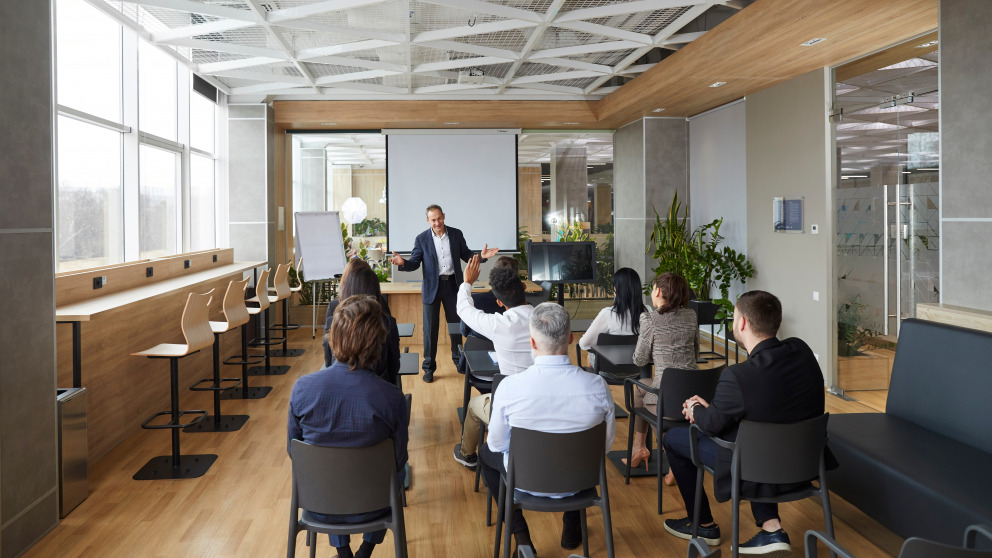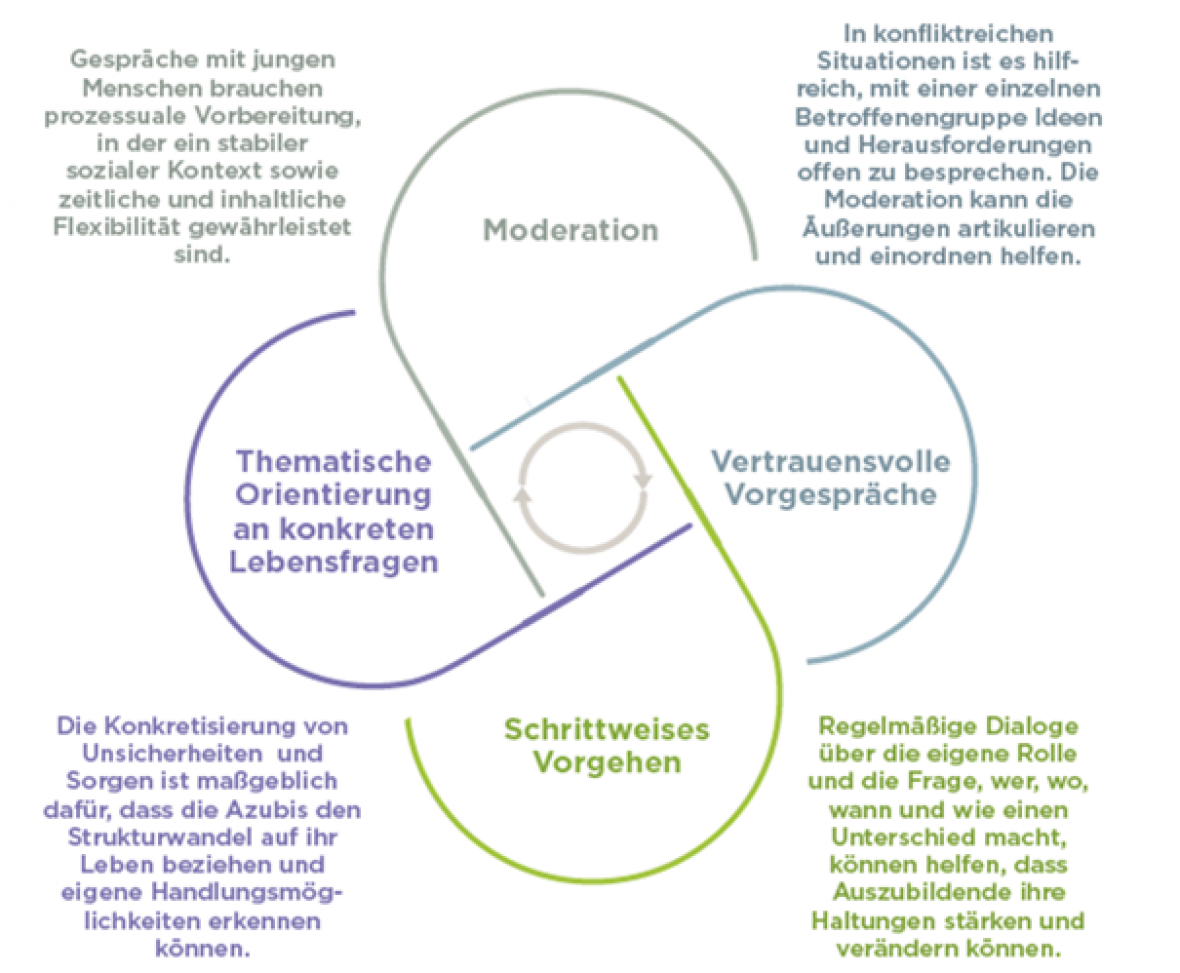Making Trainees in the Coal Industry Agents of Change
19.09.2022
How can courses at vocational schools encourage their students to work for climate mitigation despite the impeding economic change? Based on workshops with trainees in the German coal-mining region of Lusatia, a team from the Institute for Advanced Sustainability Studies (IASS) offers some guidelines on how to include civics and education for sustainable development in lesson plans.

Drawing on insights gained through a series of workshops with two classes of trainees at the lignite company Lausitzer Energie AG (LEAG) at the power plant Jänschwalde and the industrial park Schwarze Pumpe, scientists Victoria Luh and David Löw-Beer outline how education in civics and sustainable development can be included in curricula so that young people have the tools they need to get politically involved and actively shape regional change.
Since making society more sustainable will affect all sectors of the economy, companies are inevitably part of the transformation. There are approximately 1.3 million trainees in Germany – they can and will have to play a significant role in the future transformation processes. But to be able to that, they will need solid education in sustainable development.
Vocational training is probably the last point in formal education where people can still be reached for education in civics and sustainable development. Indeed, studies have shown that the transition from school to work is one of the most important phases of political socialisation. Yet, these studies also show that students at vocational schools tend to have a less favourable view of democracy. Successful education in civics can compensate for this and awaken both political interest and political skills in students from families that are not involved in politics. Moreover, according to first author Victoria Luh, “the workshops showed that learning content is most likely to grab students’ attention when it takes up the workplace and everyday issues that personally affect them.”
Conclusions from the workshops
The IASS team played the dual role of moderator and observer at the workshops on civics and sustainable development. Through the two workshop series, they gained insights into how to steer educational processes so that they support students in formulating their interests coherently and politically as well as identifying and closing their information gaps.
The researchers also developed and conducted a survey with the trainees which led to the following conclusions:
- Content and methods should be used that connect to learners' biographies and career interests.
- Stable and long-term social settings should be created, in which
- instructors provide a space for young people to freely express their views and moderate the discussion. Also:
- concrete areas for action must be jointly identified.
"Our research shows that trainees in the coal industry not only care about their own future, they are highly motivated and have plenty of ideas on how to help shape the regional process of structural change. In view of the various sustainability transformations that will take place in the energy and mobility sectors in the coming years, we should strengthen education on civics and sustainable development in vocational schools," says co-author David Löw-Beer.
Publication:
Victoria Luh und David Löw-Beer: Politische Bildung in Berufsschule und Betrieb als Möglichkeitsraum organisationaler und diskursiver Emanzipation. Auszubildende in der Kohleindustrie im Lausitzer Strukturwandel, unsere Jugend, 09/2022. DOI: http://dx.doi.org/10.2378/uj2022.art56d


